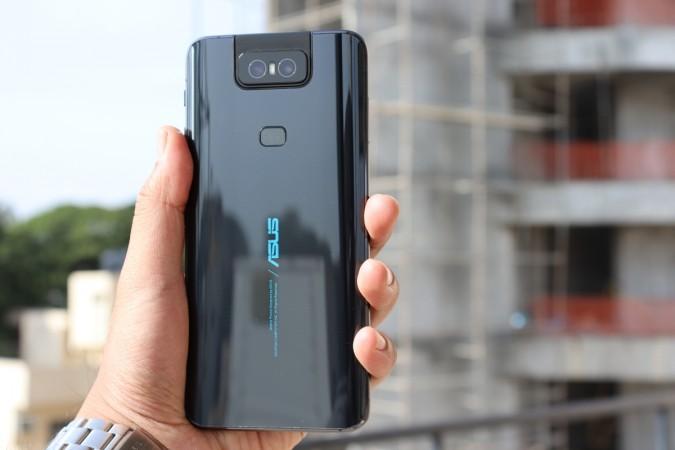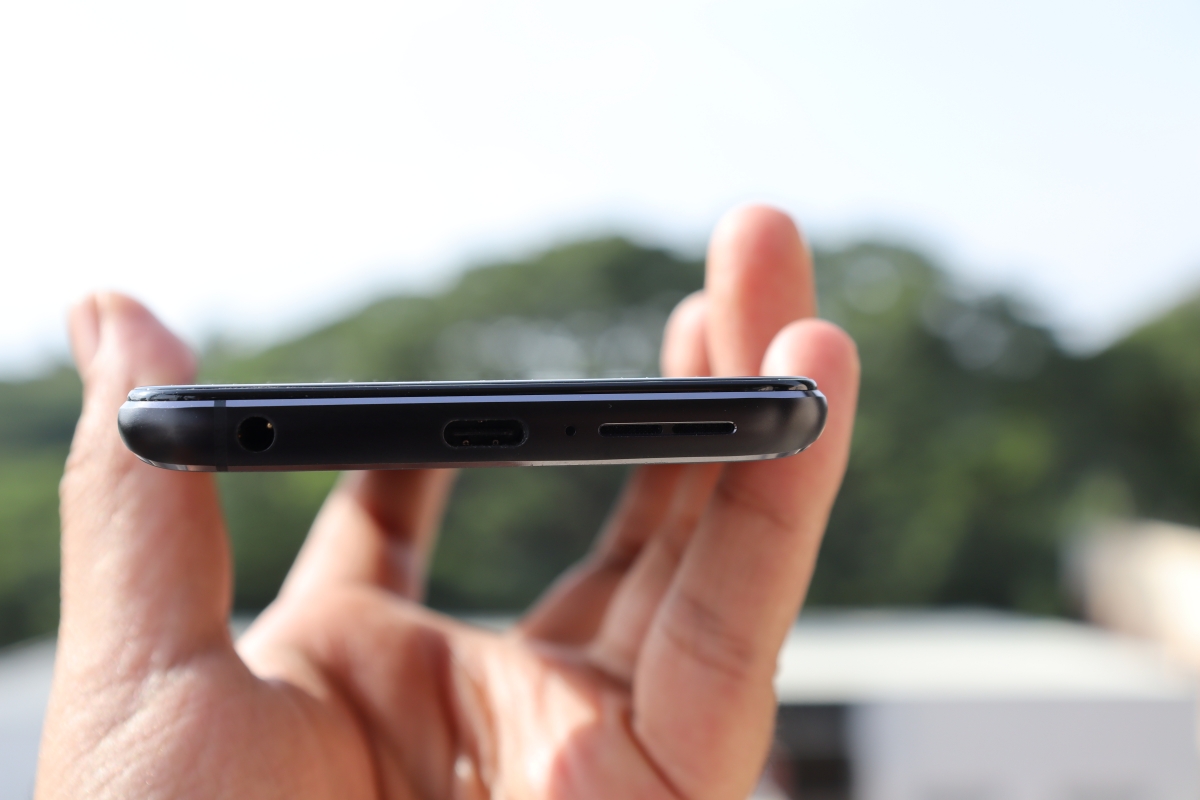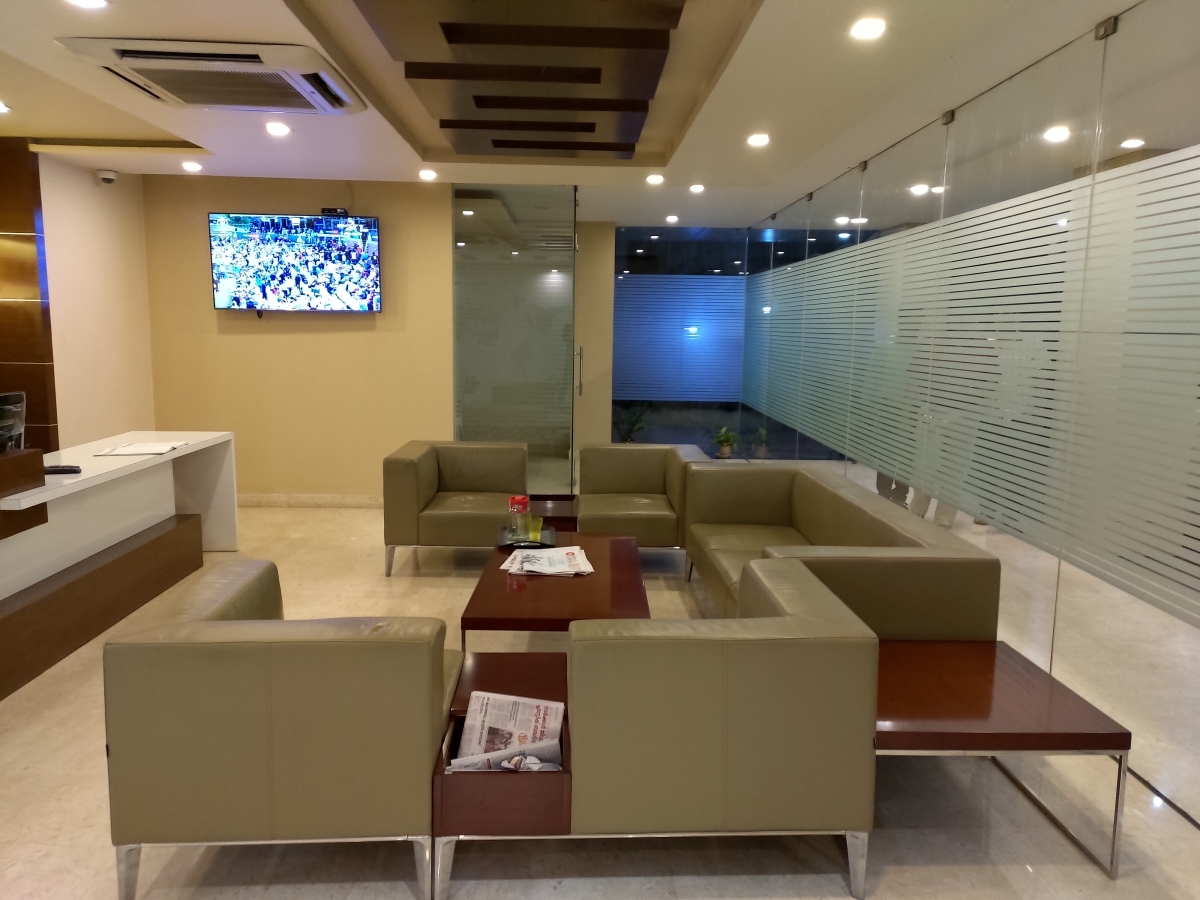The flagship race is as intense as it gets. While OnePlus 7 Pro has been dominating the headlines of late now, Asus picked up the pace with the launch of its 6Z (Zenfone 6 in other markets), which is now out for the win.
Asus 6Z packs an incredible spec-sheet, enough to give the "flagship killer" OnePlus 7 a tough competition. There are several highlights in the phone, but the flip camera is unique to 6Z, which eliminates the need for a selfie camera - be it pop-up or punch-hole. The mechanism of the flip camera might raise concerns for many, but it is as durable as the rising camera found on many phones these days.
Moving on, it is interesting to see Asus come up with a worthy challenger in the premium smartphone category and it might even be able to make it worthwhile for the buyers. Asus 6Z has replaced OnePlus 7 Pro for my primary device and things are looking good so far. Before we get to our review of the phone, take a look at the specifications.
Display: 6.4-inch Full HD+ LCD screen, Gorilla Glass 6
CPU: Snapdragon 855
RAM: 8GB
Storage: 256GB
Camera; 48MP f/1.79 + 13MP 135-degree wide lenses
Battery: 5,000mAh, 18W Quick Charge 4
OS: Android Pie, ZenUI 6
Add-ons: Fingerprint scanner, dual SIM, dedicated microSD card slot, flip camera, NFC, Bluetooth 5.0
For a smartphone with this configuration and an asking price of Rs 39,999, it seems like a sound deal. There's also a 6GB+128GB model priced at Rs 34,999 for those who want to save a few bucks. Buyers can choose from Midnight Black and Twilight Silver. Let's see how it fares against its rivals.
OnePlus 7 Pro is one of the finest designs I've seen so far this year, but I had no idea Asus 6Z would win over with some unique elements and the single-hand use factor. I missed that compactness of the phone in the OnePlus 7 Pro, but then it was made up of an excellent display and design. With the 6Z, I didn't have to compromise on anything as far as the design goes.

Asus 6Z is sleek, handy and the truly full-screen display is definitely a visual treat. The bezels around the display are minimal, but the bottom bezel isn't. This isn't a deal breaker. But the LCD display isn't the best when used under direct sunlight. I often struggled when I had to take the phone out and use it in broad daylight, even at highest brightness levels. Using an AMOLED display could've fixed it, but Asus had to cut costs somewhere.

The right side of the phone houses power and volume controls along with a quick launch button for Google Assistant. At the bottom are the Type-C port, a well-designed stereo and a 3.5mm headphone jack for those who still need it. The Type-C port also supports headphones, so you're not at a complete loss there.
The glass back is not slippery, but it sure does attract a lot of smudges. There's a clear hard case in the box, which can prevent fingerprint marks on the rear panel. But let's address the elephant in the room - the flip camera.
The phone's biggest USP, its flip camera allows users to shoot photos and selfies using the same camera setup, guaranteeing the best image quality for selfie lovers. The mechanism of the flip camera isn't bad at all. But when rested, there is a slight click sound on tapping it, which suggests it is not secure. But there's no way the flip camera flips out without activating the front camera. Due to the flip camera, the handset doesn't get water resistance and dust seems to easily settle behind the camera.

The flip camera is smart enough to detect a fall and retract immediately. It is interesting the camera module can be rested at different angles to shoot images, which would otherwise require us to hold the phone at weird angles.
I loved the different modes offered by Asus in the 6Z. I could shoot in all the usual modes, including portrait, night, pro, panorama, slow-mo and time-lapse, but there's an extra mode called motion tracking. It takes some getting used to, but once you know your angles, the flip camera is put to best use in this mode.

What is better than that is the ability to use the main camera as the selfie camera, which is why it is the best device for those who love taking selfies and videos of themselves with the highest resolution possible. The images produced by the 48MP+13MP camera setup are pretty good in details, contrast and dynamic range. The colours are punchy with good highlight and shadow.

If you're expecting Pixel 3-grade image quality, you're expecting a lot, but the 6Z is definitely one of the better camera phones out there. Asus offers a special HDR++ mode, which takes a few seconds to capture images, although in ideal lighting conditions. I wasn't entirely impressed by the HDR++ as the auto mode did a fine job at balancing out the different aspects of the image clarity.
Night mode is also offered to give users a brighter image in dark. It surely helped with improving noise reduction and colour reproduction, but again, not on the same level as Pixel 3. If the surrounding is really dark, don't bother taking out the phone as details are missed and colours are washed out, even with night mode.
The dedicated ultra-wide angle lens comes in handy while capturing larger landscapes. The results are dramatic, as they are supposed to be, which I loved. There was little distortion towards the edges and the details, colours, shadows and highlights are retained to the best of capabilities.

Asus 6Z is an easy recommendation for selfie lovers, as they cannot get better hardware and software with all working modes for the front camera. The portraits shot on the 6Z are good as well, with accurate edge detection. Check out more samples below.
Another thing I loved about the 6Z is the user interface. For me, the UI plays a vital role in the overall experience. I loved the fact that ZenUI is closer to stock Android, like the OnePlus' OxygenOS. The interface is cleaner, free from bloatware, minimalistic animations and snappy as it can ever be.

Everything from the Pie-like two-button navigation, full-screen gestures borrowed from Android Q, dark theme option to fast and smooth operations no matter what has made me recommend the ZenUI 6 next to Google's own OS and OnePlus OxygenOS. The Snapdragon 855 processor and 8GB RAM surely added to the smooth functioning of the phone as I did not have any lags nor apps froze up on me. Playing PUBG and Asphalt is like you're playing it on OnePlus 7 Pro, except not as bright and clear. The highest graphics games will feel a bit washed out if you compare OnePlus 7 Pro and 6Z side-by-side, but I didn't mind what Asus gave at its price point.
Apps launched faster and I didn't have to worry about heating at any point. Gaming for long hours did tend to heat up the phone, but not to an unbearable extent.

Asus 6Z has impressed me in many ways. But the inclusion of a 5,000mAh battery in such a sleek body is quite impressive. With mild to heavy use, I was able to get through an entire day without plugging in. But if you can minimise the use to just calls, messages, browsing social media then you can get close to two days battery life. That's one area where I didn't mind having an LCD display. For the humungous battery, the 18W quick charger is a must. Although not as fast as OnePlus Warp Charge, it was surely something. I really hoped for a 30W charging support, but you cannot have everything.

Finally, the fingerprint scanner at the back is as fast and efficient as it can be. I didn't use face unlock as I hated to see that camera flip every time I wanted to unlock the phone. But for those who want to use it, it's not so bad at all. I just preferred the good-old tap-to-unlock option.
Verdict
If you are looking for a solid premium smartphone with the best performance, battery and selfie camera, the 6Z is what you need. Between OnePlus 7 and Asus 6Z, the latter wins. But when compared against OnePlus 7 Pro, you'll find yourself drooling over that beautiful display, design and fast charging battery of the OnePlus flagship.

Asus 6Z makes a winning argument with its top-of-the-line specs and a sub-Rs 40,000 price range. It lives up to the expectations of the masses who want the best of everything without breaking the bank.


































